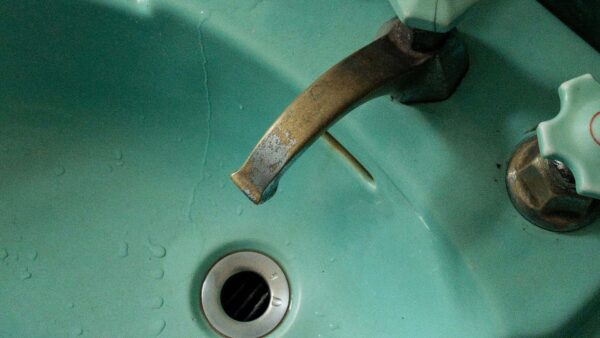If you run your own plumbing business, you’re probably well aware of the hazards you and your employees face while on the job that could lead to an insurance claim. If you’re just starting out, there are some risks that will be obvious, and others not so much.
Because your customers will expect your plumbing business to have insurance, you want to keep your premiums as affordable as possible, and that means avoiding claims.
The types of claims you are likely to make depend on the type of work you do. Commercial jobs involve different risks than residential jobs, and working on repair or replacement jobs involves different risks than brand new construction projects.
What kind of work do you do?
Your plumbing business may accept a variety of jobs, but most specialize as follows:
- Residential or commercial – Generally speaking, residential plumbing projects are much more likely to result in an insurance claim than commercial projects. The reason is simple. Residential buildings simply have a lot more plumbing connections than commercial ones.Imagine two identical 25-story buildings. Each has 15,000 square feet per story. The first is an office tower, which has a men’s bathroom, a women’s bathroom and a kitchenette on every floor. The second is a condo, which has 15 units per floor, with an average of two bathrooms and a kitchen. The condo has about 20 times the number of plumbing connections of the office tower. The more connections, the more chances for a leak.
- New installation or repair/renovation – The number of plumbing connections in a given job is a good predictor of the number and cost of claims you should expect. The other factor that can dramatically affect the risk of a failure is combining different types of plumbing in the same building. If you are working on a brand new building, you are probably working with one kind of plumbing, likely copper, and all the connectors are standard. When you repair plumbing or try to connect new fixtures to an older plumbing system, you may be trying to connect PVC or PEX piping to a system that is mostly copper. For this reason, plumbers working on repairs and renovations are much more prone to make claims than those working only on new construction projects. Repair and renovation jobs can also lead to a large number of fire claims related to welding in tight spaces, around insulation etc.
Did you know?
Your plumbing business prides itself on doing the job right every time. No short-cuts, high-quality materials, top-notch training for your employees. Good for you. This will reduce the likelihood of making a claim, but not completely. If you install all the plumbing for a new condo, and a year later, a pipe springs a leak and damages 4 units, the customer or their insurance company will probably try to recover their losses by suing you. And courts in Canada have been known to assign liability to a plumbing contractor for water losses even if there is no proof that their work caused the loss.
Common claim scenarios
Plumbing is one of the most risky contracting businesses, and there are different kinds of claims that come up. Here are three common claims:
- Water damage – You are subcontracted to do the plumbing as part of a new condo. You install more than 2,000 plumbing fixtures. A year later, the dishwasher connection in one of the units fails and floods three units. Total claim: $33,000
- Fire damage – You are working on a kitchen renovation using all copper pipe. While welding a connection, your employee accidentally sets fire to insulation in the wall. The fire is put out quickly, but there is fire and smoke damage in a number of rooms. Total claim: $25,000
- Theft – You are working on a new office building. $4,500 worth of copper pipe is stolen from your company truck. Total claim: $4,500+
Tips for avoiding claims
As a plumbing contractor, there are a number of measures you can take to prevent claims:
- Try to work with only one type of piping if you can. Preferably copper. PVC piping is more likely to fail.
- Make sure to lock up your tools and materials, especially when they are in transit or awaiting installation on a work site. (In fact, if tools are stolen from an unlocked truck, the claim could be denied.)
- Avoid welding in tight spaces, especially around insulation.
Plumbers insurance usually includes coverage for:
- General liability (protecting your business from legal action against you)
- Tools and equipment (if they are damaged, destroyed or stolen)
Other coverage to consider:
- Commercial auto insurance – If you use your own personal vehicle for work, make sure to let your broker know. If you have one or more vehicles that belong to the business, you need a commercial auto insurance policy.
- Commercial property insurance – If your business has a physical location, you need property insurance to protect your office or shop and the stuff that you keep there. Also covers you if someone is hurt while visiting your location.
- Legal expense insurance – includes unlimited legal advice in relation to disputes you may have with clients or employees or answers to theoretical “what if” questions. Can also provide funding towards any legal action you take as a result of a dispute.
- Cyber and data breach insurance – a very broad insurance which protects you in the event that you are hacked and personal client data is exposed, or if your system is infected or encrypted by a virus.
- Installation floater – protects equipment and stock which is lost or damaged in transit to, or at your worksite before it is permanently installed or fitted. For example, copper pipe is stolen from a work site where it’s waiting to be installed.
Learn more about Ontario plumbers insurance.
(Our thanks to Steve Schmelzle from RSA Insurance, one of our trusted contractors insurance partners, who agreed to share his expertise for this piece.)
Looking for contractor insurance?
Speak with a Mitch Insurance broker today to get a quote on Ontario contractor insurance. Learn more >
Call now
1-800-731-2228








